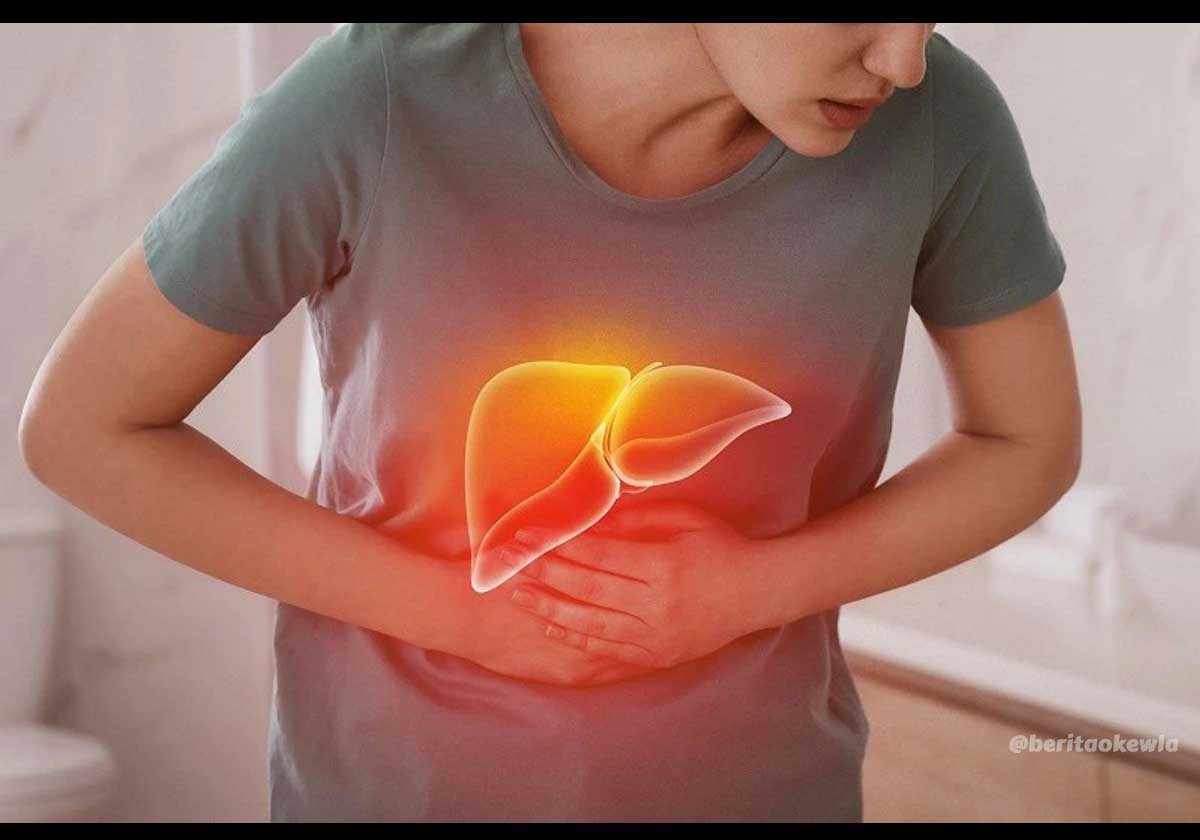Do you know? The liver is a vital organ that should be protected. Although it is often forgotten, the liver is the largest solid organ in the body. Keeping your heart in top condition is important. If the liver is disturbed, one of the symptoms that is felt is pain. So, how do you maintain a healthy liver? You can try these 10 ways to maintain a healthy liver, you know!
Liver Organ Function
The role of the liver is very important in that it can produce protein, metabolize cholesterol, and produce bile which stores vitamins, minerals and even carbohydrates for the body. The liver can even break down toxins from drugs to natural byproducts of metabolism. The liver performs more than 500 vital functions. Some of the most important functions include:
- Albumin production, albumin is a protein that keeps fluids in the bloodstream from leaking into the surrounding tissue. Additionally, it carries hormones, vitamins, and enzymes throughout the body.
- Bile production, bile is a fluid that functions for digestion and absorption of fat in the small intestine.
- Blood filter, useful for removing toxins, by-products and other harmful substances.
- Regulates amino acids, protein production depends on amino acids.
Regulating blood clotting, coagulants (physical chemical processes) of blood clotting are made using vitamin K , which can be absorbed with the help of bile, a fluid produced by the liver. - Resists Infections, as part of the filtering process, the liver also removes bacteria from the bloodstream.
- Storing vitamins and minerals, the liver stores large amounts of vitamins A, D, E, K, and B12, as well as iron and copper.
- Removes excess glucose (sugar) from the bloodstream and stores it as glycogen. As needed, it can convert glycogen back into glucose.
How to Maintain Liver Health
The role of the liver cannot work optimally due to various factors caused by pollution or an unhealthy lifestyle. So, for that you need to pay attention to the following things to create a healthy heart.
-
Maintaining Weight
If a person is obese or overweight, then they are in danger of having a fatty liver. Fatty liver can cause one of the non-alcoholic fatty liver diseases (NAFLD). This liver disease progresses the fastest. Thus, losing weight by adopting a healthy diet plays an important role in reducing liver fat.
-
Eat nutritious foods.
Get into the habit of eating balanced meals to reduce high-calorie foods, processed carbohydrates, saturated fats and sugar. Fill your plate with vegetables, fruit, whole wheat bread, nuts which are nutritious for the body. Complete with protein side dishes, such as eggs, beef, chicken, low-fat milk, fish, but still limit the amount of red meat. Meanwhile, avoid consuming raw or undercooked shellfish. Don’t forget to drink enough water so that your body doesn’t become dehydrated.
-
Regularly Doing Physical Activity
Who would dare deny the benefits of exercise. If someone consistently exercises, they can also reduce fat in the blood, including cholesterol. Physical activity can include jogging, swimming, and others.
-
Avoid Toxins or Toxic Substances
When cleaning the house, use aerosol cleaning products, insecticides, which contain dangerous ingredients. Make sure the room is ventilated and wear a mask.
-
Avoid Alcohol
- Avoid using alcohol which causes health impacts. Excessive alcohol consumption can damage liver cells and injure the liver. Additionally, other health problems can arise from excessive alcohol use.
- Be careful when taking medication.
When choosing medication, you should get a prescription or on the advice of a doctor. This is because many over-the-counter medicines, if consumed excessively and without clear regulations, can be toxic to the liver. In addition, avoid using illegal drugs including heroin, cocaine, marijuana or psychotherapy used non-medically. - Avoid Contaminated Syringes
Avoid using shared syringes or unsafe used syringes. Additionally, keep personal items clean, such as razors, toothbrushes, and nail clippers, which can carry microscopic levels of blood or other body fluids that may be contaminated. If that happens, get medical treatment immediately if you come into contact with blood or come into contact with someone else’s blood, follow up with a doctor immediately. - Get Vaccinated
Try getting vaccinated to protect your liver. Currently, new vaccines are available for Hepatitis A and B. Meanwhile there is still no vaccine against the Hepatitis C virus. - Washing Your Hands
It looks simple, but washing your hands has great benefits. Because the germs that cause disease are often on the hands. That’s why washing your hands is important, especially before eating, after using the bathroom, coughing, sneezing or wiping your nose. Moreover, the current pandemic conditions are a reminder that washing hands is important to prevent the spread of the virus. This simple behavior has a positive impact in preventing infectious diseases. Wash your hands with soap and rinse using running water. - Avoid Changing Sexual Partners.
Make sure to use condoms when having sex and avoid changing sexual partners.
As explained above, the liver has an important function, located under the ribs, in the upper right part of the abdomen. The liver filters all the blood in the body and breaks down toxic substances, such as alcohol and drugs. The liver also produces bile, a fluid that helps digest fats and carries away waste. The liver consists of four lobes, each of which contains eight parts and thousands of lobules (or small lobes).
Those are 10 ways you can protect your liver. Apart from that, it is also important to carry out a health check or medical check-up with a doctor to ensure that liver function remains good. If you experience symptoms, such as getting tired easily, a swollen stomach, yellow skin and eyes, and are easily infected or have a high risk of liver disease, immediately talk to a doctor for an examination and appropriate treatment.


No Responses